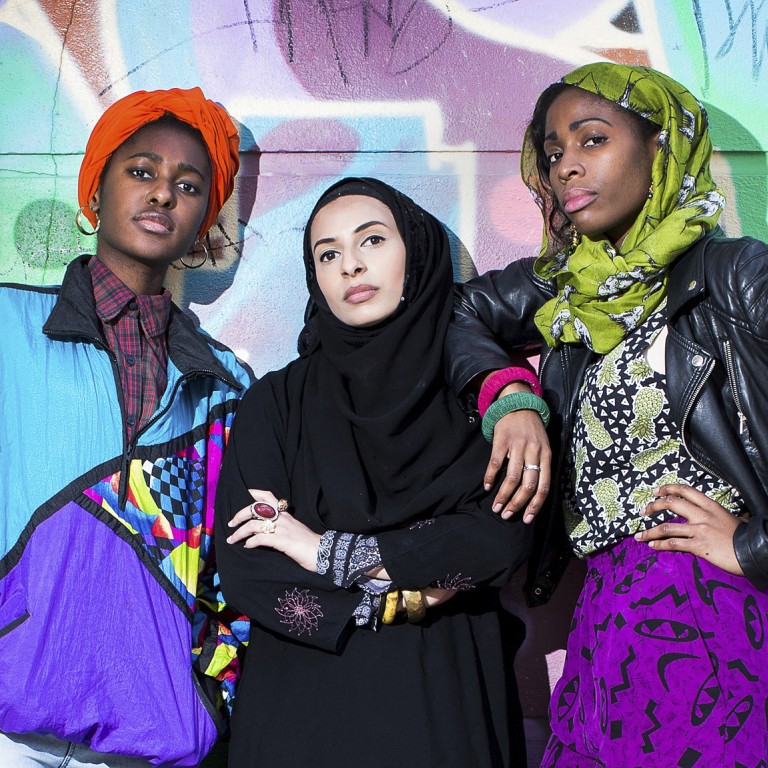
Writer seeks new stage for cancelled play on Islamic radicalisation
The decision by Britain's National Youth Theatre to scrap the staging of Omar al-Khairy's work Homegrown caused an outcry. He suspects external pressure was put on the theatre because of the play's content
The writer behind Homegrown, a controversial play exploring radicalisation and jihadi brides that was shut down less than a fortnight before its opening, has confirmed he is in talks to get it staged elsewhere.
The cancellation of the National Youth Theatre (NYT) production caused an outcry in Britain, with the team behind it believing it was a result of external pressures put on the show due to its sensitive content.
Omar el-Khairy, who was commissioned by the youth theatre to write the piece, says numerous figures and organisations have offered to stage the play, and discussions are continuing.
Homegrown was due to be staged at a school in North London with a 112-strong cast of 15- to 25-year-olds. However, two weeks before its debut, the NYT informed both the director and the writer that the production could no longer go ahead.
In a statement, the NYT said Homegrown was shut down because of concerns about its quality – a suggestion disputed by both the creators and the cast, leading to claims that they were “silenced and censored”.
The matter also prompted an open letter from the writers’ rights organisation English Pen, signed by some highly regarded figures in the arts, from playwright David Hare to artist Anish Kapoor and actor Simon Callow, demanding a full explanation. Civil rights groups Liberty and Index on Censorship have also called for the theatre to be entirely open about the reasons for cancelling the show.
The production had already relocated from a school in Bethnal Green in East London (an area with a large Muslim population) after an intervention from the Tower Hamlets Council, and Khairy and director Nadia Latif also allege they were asked to hand over a copy of the script to the police to vet.
Since the matter had gone public, Khairy said he had been contacted by several figures in the theatre industry who felt it was important that Homegrown still be available to the public.
He says: “Particularly after that Pen letter, we had offers, both concrete and symbolic, to help us put the play back on, so I’m optimistic it can still happen. We are still hoping to do it in some form.
This is an issue that deals with bigger issues than just the cancellation of a single play, more nuanced questions around censorship
“We’ve also had discussions with theatre companies who traditionally work in found spaces. They are all aware of the site-specific nature of the play, so it’s about potentially recreating that. It’s still early, so we may still end up in a school; we just don’t know at this point.”
The reasons for the show’s cancellation remain opaque. Khairy says a meeting with Paul Roseby, the director of the National Youth Theatre, which was due to take place a fortnight ago, was pushed back to an unspecified time at the end of this month with no explanation. The theatre had no further statement.
“This is an issue that deals with bigger issues than just the cancellation of a single play, more nuanced questions around censorship,” says Khairy.
“We’ve waited patiently and willingly for answers, but we still haven’t been given any. We don’t feel we’ve been told the whole truth. All we wanted was for the piece to be able to speak for itself.”
He says that while he is frustrated by the cancellation of Homegrown, it had also confirmed what he describes as a “fear in this country to engage with Islam slightly more intellectually and calmly, without any of the hysteria”.
“What happened with Homegrown was a shock, but at the same time, it wasn’t a complete surprise in terms of the environment we are working in,” he says. “I don’t think it was a watershed moment; instead, it opened up the conversation for people who presumed these issues around censorship and how we talk about Islam weren’t that current or that important.”
He says he welcomes the discussion over freedom of expression in Britain.
“That distinction that continues to be made between the East being the place of repression and the West as this liberal haven I find really problematic, as if this is a place where we can all work wonderfully,” he adds. “I think there needs to be an attempt to bridge those conversations and be a little more honest about certain things.”
The Guardian


